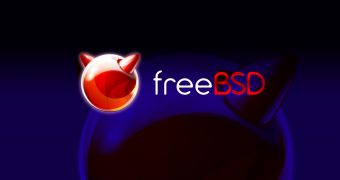The final version of FreeBSD 10.0, an operating system for x86, ARM, IA-64, PowerPC, PC-98, and UltraSPARC architectures, has been officially released and is now available for download.
FreeBSD developers have made available quite a few Release Candidates so far in an effort to root out all the problems that might have occurred.
“Beginning with FreeBSD 6.2-RELEASE, binary upgrades between RELEASE versions (and snapshots of the various security branches) are supported using the freebsd-update(8) utility.”
“The binary upgrade procedure will update unmodified userland utilities, as well as unmodified GENERIC or SMP kernels distributed as a part of an official FreeBSD release. The freebsd-update utility requires that the host being upgraded have Internet connectivity,” reads the official announcement.
Highlights of FreeBSD 10.0:
• Capsicum has been enabled in the kernel by default, allowing sandboxing of several programs that work within the “capabilities mode”; • The drm2) Radeon GPU driver, which works for GPUs up to Radeon HD 6000 and partially supports the Radeon HD 7000 family, has been added. This driver has been ported from Linux 3.8; • The BSD Hypervisor, bhyve is included with FreeBSD. bhyve requires Intel CPUs with VT-x and Extended Page Table (EPT) support; • Raspberry PI support has been added; • A new kernel-based iSCSI target and initiator has been added; • Support for L2ARC compression has been added to ZFS; • On platforms where clang is the default system compiler (such as i386, amd64, arm), GCC and GNU libstdc++ are no longer built by default; • BIND has been removed from the base system; • GNU patch has been removed from the base system, along with GNU sort; • GNU Binutils has been dropped; • AMD has been updated from 6.0.10 to 6.1.5; • OpenSSH has been updated to 6.4.
The official changelog comes with a complete list of instructions. Download FreeBSD 10.0 right now from Softpedia.

 14 DAY TRIAL //
14 DAY TRIAL //